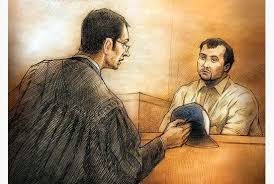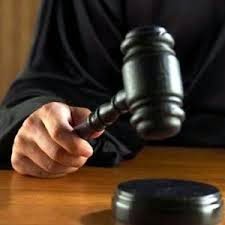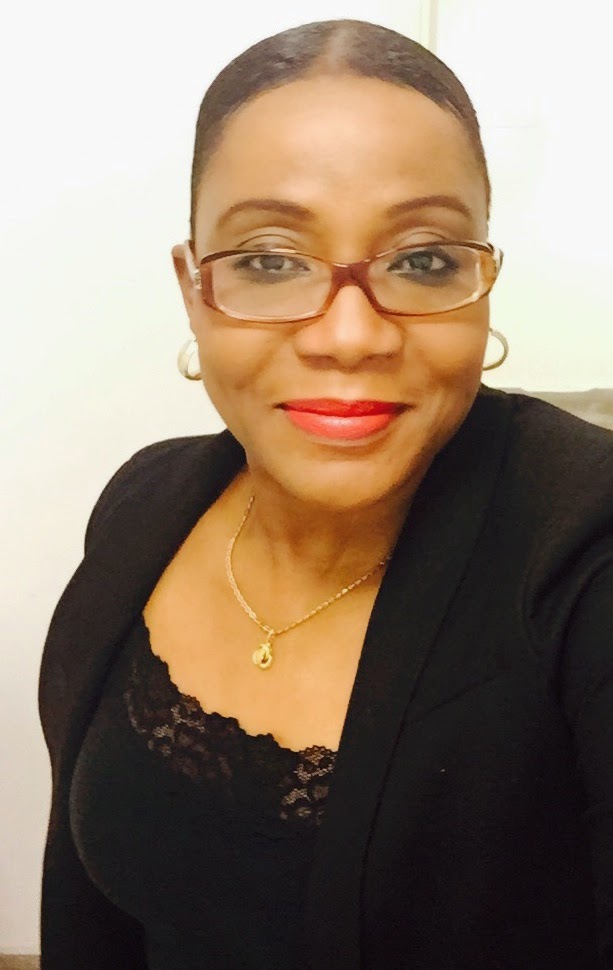 |
| Credits – thestar.com |
The most striking feature of the criminal trial is
its oral nature, and its central phenomenon is the process of oral examination
of witnesses. The greater part of the law of evidence, the rules of relevance
and admissibility, dictate the manner and extent of the witnesses’ testimony.
But these are general rule of evidence. Whilst it is its orality which is the striking
feature of the criminal trial, it is the process of question and answer which
is the distinctive feature of that oral procedure. The witness who is
testifying is not allowed to make a speech. What he says is said in response to
questions put to him in the course of examination, cross-examination and
re-examination.
its oral nature, and its central phenomenon is the process of oral examination
of witnesses. The greater part of the law of evidence, the rules of relevance
and admissibility, dictate the manner and extent of the witnesses’ testimony.
But these are general rule of evidence. Whilst it is its orality which is the striking
feature of the criminal trial, it is the process of question and answer which
is the distinctive feature of that oral procedure. The witness who is
testifying is not allowed to make a speech. What he says is said in response to
questions put to him in the course of examination, cross-examination and
re-examination.
The process of question and answer prevents the
witness from going off on a frolic of his own. Counsel’s questions should have
regard to the rules of relevance and admissibility and should ensure that the
testimony of the witness is directed to the case for the prosecution or
defence. The disadvantage of the process is that the witness may be denied
opportunity to tell the full story as he sees is. During cross-examination it
is possible for counsel to question the witness selectively and to cease a line
of questioning when he has elicited information for hs own purpose, denying the
witness the opportunity to elaborate or qualify what he has said. Where the witness
has been selectively examined, whether during his examination-in-chief or under
cross-examination, it is for the opposing counsel to correct the balance during
examination or re-examination.
witness from going off on a frolic of his own. Counsel’s questions should have
regard to the rules of relevance and admissibility and should ensure that the
testimony of the witness is directed to the case for the prosecution or
defence. The disadvantage of the process is that the witness may be denied
opportunity to tell the full story as he sees is. During cross-examination it
is possible for counsel to question the witness selectively and to cease a line
of questioning when he has elicited information for hs own purpose, denying the
witness the opportunity to elaborate or qualify what he has said. Where the witness
has been selectively examined, whether during his examination-in-chief or under
cross-examination, it is for the opposing counsel to correct the balance during
examination or re-examination.

The relevance, directness and cogency of the
evidence of a witness is dependent not only on the story which he has to tell,
or the facility with which he can tell it, but on the skill of counsel
examining or cross-examining him. One advantage of the system is that it helps
to reduce the disparity in the persuasive forces of a highly articulate and
confident witness vis-à-vis one who
is nervous and inexperienced, but in doing so it gives an advantage to
experienced and clever counsel. Through his questioning he is able to structure
the evidence of the witness. His aim is to give coherence and, hopefully,
brevity without sacrificing content or persuasive power.
evidence of a witness is dependent not only on the story which he has to tell,
or the facility with which he can tell it, but on the skill of counsel
examining or cross-examining him. One advantage of the system is that it helps
to reduce the disparity in the persuasive forces of a highly articulate and
confident witness vis-à-vis one who
is nervous and inexperienced, but in doing so it gives an advantage to
experienced and clever counsel. Through his questioning he is able to structure
the evidence of the witness. His aim is to give coherence and, hopefully,
brevity without sacrificing content or persuasive power.
Advocates have a remarkable privilege. They are
allowed to ask highly personal questions of people in a public area and people
must answer them. Few others have this privilege, apart from judges. There is a
danger advocates can march into peoples’ lives, turn them completely upside
down, and waltz out for a glass of wine. The public sometimes perceives this as
what advocates do. For the advocate, it is just another day’s work. But for the
witness, who often has not been questioned in court before, the experience may
have been devastating, never to be forgotten.
allowed to ask highly personal questions of people in a public area and people
must answer them. Few others have this privilege, apart from judges. There is a
danger advocates can march into peoples’ lives, turn them completely upside
down, and waltz out for a glass of wine. The public sometimes perceives this as
what advocates do. For the advocate, it is just another day’s work. But for the
witness, who often has not been questioned in court before, the experience may
have been devastating, never to be forgotten.
REMEMBER THE IMPACT YOU WILL HAVE ON OTHERS’ LIVES
Do not become blasé. Some advocates can play the
disdain card well. But they are very experienced. If you play it badly, you
will usually lose the case. So in the
early years, don’t do it!
disdain card well. But they are very experienced. If you play it badly, you
will usually lose the case. So in the
early years, don’t do it!
WITNESSES ARE
PEOPLE
PEOPLE
They are not objects. They are not for picking over
disdainfully like some laboratory specimen. There are some truly awful advocates
who treat witnesses appallingly. Never, ever be like that
disdainfully like some laboratory specimen. There are some truly awful advocates
who treat witnesses appallingly. Never, ever be like that
ALWAYS BE
POLITE.
POLITE.
Even to the witness who is the greatest enemy of
your case and especially to that person. Anger, disdain, answering back, are
always always dangerous. Disdain makes you look arrogant and so you lose
respect. Anger makes you look as if you are losing. Answering back makes it
seems you are too involved in your case. Try to envisage you are above the
fray, while keeping a measure of common sense.
your case and especially to that person. Anger, disdain, answering back, are
always always dangerous. Disdain makes you look arrogant and so you lose
respect. Anger makes you look as if you are losing. Answering back makes it
seems you are too involved in your case. Try to envisage you are above the
fray, while keeping a measure of common sense.
WITNESSES ARE
USUALY INTIMIDATED BY THE COURT AND THE FORMALITY OF WIGS AND GOWN
USUALY INTIMIDATED BY THE COURT AND THE FORMALITY OF WIGS AND GOWN
If they are your witnesses, PUT THEM AT EASE.
Settle them slowly. Ask easy questions to begin
Ensure questions are simply phrased. One question
at a time.
at a time.
Look at the witness, eye contact again, smile even.
Invite them to keep their voice up.
Invite them to keep their voice up.
Invite them to address the tribunal, especially on
really important points.
really important points.
DEVELOP A
SYAYETEM WITH YOUR WITNESSES
SYAYETEM WITH YOUR WITNESSES
Question. Answer. Question. Answer
Encourage the feel of dialogue
Get a rhythm going. But pace the speed of the
dialogue to meet the judge’s pen.
dialogue to meet the judge’s pen.
Keep things slow and even and pleasant, and the witness
will feel more comfortable.
will feel more comfortable.
Remember that every witness has a personality. Try
to tease that personality out, or they may appear wooden and lifeless and will
be less likely to be relied upon by the tribunal.
to tease that personality out, or they may appear wooden and lifeless and will
be less likely to be relied upon by the tribunal.
And finally, for all the brooding atmosphere of a
court, for all the formality and strangeness of it, your witnesses have a story
to tell. They may feel in front of lawyers it is a story which must be told in
some formal manner with big words. Stop them; instead, get them to tell their
story easily, in their own words without worrying about impressing all the
supposedly clever lawyers.
court, for all the formality and strangeness of it, your witnesses have a story
to tell. They may feel in front of lawyers it is a story which must be told in
some formal manner with big words. Stop them; instead, get them to tell their
story easily, in their own words without worrying about impressing all the
supposedly clever lawyers.

Olajumoke Bababtunde
Olajumoke is a Senior Criminal Prosecutor based in
the United Kingdom. She has extensive experience in all areas of criminal law
and specialises in Rapes, Child Abuse, Serious Sexual Offenses, Drugs and Human Trafficking Offences. Olajumoke also has a wealth of experience in cases
involving covert surveillance, telephone and cell site evidence.
the United Kingdom. She has extensive experience in all areas of criminal law
and specialises in Rapes, Child Abuse, Serious Sexual Offenses, Drugs and Human Trafficking Offences. Olajumoke also has a wealth of experience in cases
involving covert surveillance, telephone and cell site evidence.
